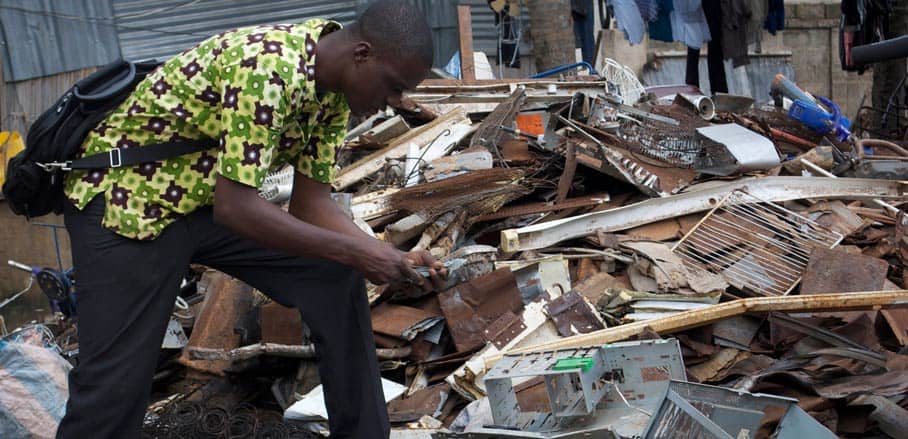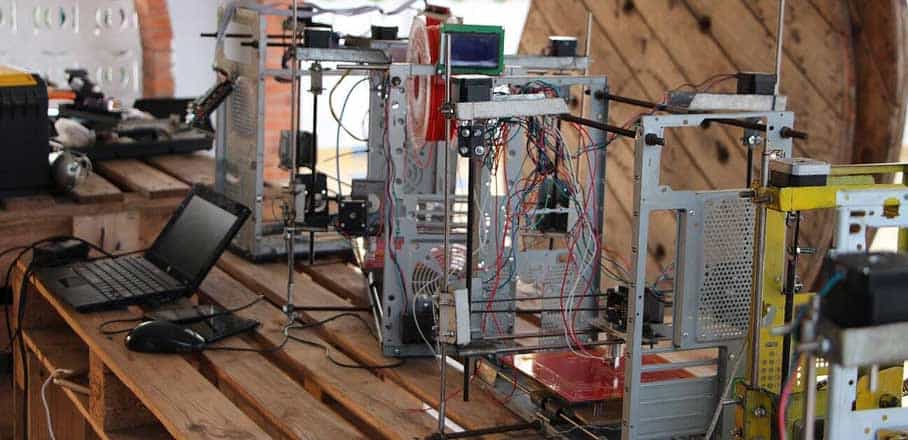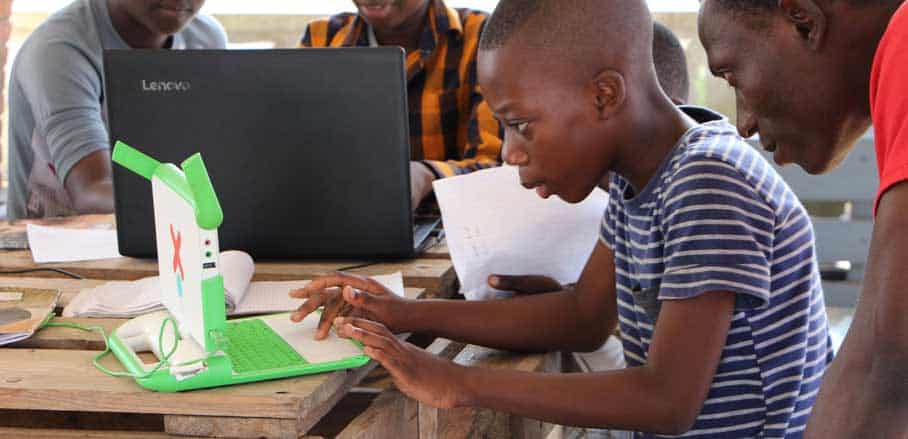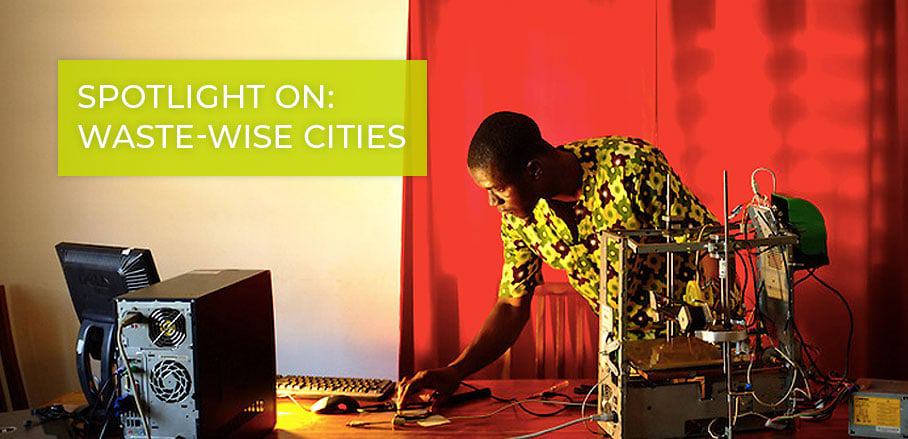Sustainable Development from Electronic Waste in Lomé, Togo
The large amount of electronic waste is a serious challenge in Lomé, Togo. At WoeLab, tech-savvy young people come up with solutions that clean the environment, ensure recycling of electronic waste, and educate residents on how to manage and valorise their electronic waste.
The Rise of Electronic Waste
Nearly 45 million tonnes of e-waste were produced in 2018, 15 per cent more than in 2017. This amount is expected to exceed 52 million tonnes by 2021. Among these wastes are raw materials such as gold, silver copper, or platinum; their value was estimated at 55 billion euros in 2018.
Due to lower prices for electronic products and higher purchasing power, developing countries have also seen an increase in these wastes. While the quantity of such waste increases, the recycling rate remains very low: Only 20 per cent of e-waste is recycled, the rest ends up in landfills, is incinerated, or buried in the ground. West Africa is home to many sites for dumping this waste.
Lomé, the capital of Togo, generates a significant amount of electronic waste: smartphones, computers, televisions, and other used electronic devices. The country is a good example for how electronic waste can be reused to promote urban renewal.
Connect to Recycle
Lomé’s FabLab WoeLab is one of the major players in the recycling of electronic waste in Lomé and an incubator for several start-ups. One of the start-ups is WoeBots, an organisation that specialises in the revaluation of unusable electronics.

© WoeLab and WoeBots
Through an online platform, the project WoeBots effectively connects the points where e-waste can be found with the people in need of spare parts. This is an extremely valuable service in an area of total absence of recycling policies and revaluation. The platform also provides all the necessary information on the management of electronic and electrical waste. Through the revaluation of open source electronic waste, WoeBots is aiming to interest and activate players in the field of technology to make use of electronic waste.
Print your Parts
Acknowledging that the necessary spare parts are often difficult and expensive to acquire, WoeBots has specialised in manufacturing 3D printers from electronic waste, putting it at the forefront of technological innovation in Africa: “W.Afate” – an 3D printer built entirely from recycled electronics – was developed. W.Afate is a rigorously local project that quickly gained international recognition, a version of it even competed in the International Space Apps Challenge.

© WoeLab and WoeBots
Most of the necessary electronic waste can be found at digital businesses, factories, and individuals. However, schools and universities are also places where we can find this waste. All of these frameworks are potential targets of WoeBots.
WoeBots informs and educates on 3D printing and also offers training on manufacturing and modelling for 3D printing. It has developed the 3DprintAfrica Educative programme (3DPAE). Since 2013, hundreds of high school students have been introduced to free 3D printing by the WoeLab community. The first-ever 3DPAE curriculum involved ten private schools within 1 kilometre of WoeLab Zero.
The goal of 3DPAE is to equip African schools with 3D printers. Today, ten Togolese schools have their own 3D W.Afate printer and 3DPAE trainers teach students aged 13 to 14 to design and print 3D objects.

© WoeLab and WoeBots
With its own 3D printer, each school can develop its own 3D printing service, to which neighbourhood residents also have access. In the very near future, the citizens of Lomé will have the possibility to print the objects they need for repairing and manufacturing devices: be they boxes for electronic devices or spare parts for a motorcycle.
Sustainable Development through #LowHighTech
Designed to provide solutions adapted to the conditions of African realities, this initiative is part of WoeLab’s #LowHighTech vision. Through a very detailed and simplified documentation, #LowHighTech aims at equipping the various social sectors with local technology and at enabling people to create their own machines.
W.Afate offers a rare opportunity – unprecedented in history – for Africa. It is an original collaborative model, a magnificent representation of the creative power of co-design spaces and one of the earliest African symbols of the contemporary movement of “commons”. It could be the architect of a small revolution in digital solidarity.
WoeLab, with the project 3DprintAfrica Educative, sets the example of sustainable development in the field of recycling of electronic waste. The systematisation of such a project on an African scale would greatly increase the amount of e-waste removed from the environment while stimulating the creation of thousands of trainers’ jobs in 3D printing, a technology which is said to be the source of the next industrial revolution.
- Sustainable Development from Electronic Waste in Lomé, Togo - 24. April 2019
